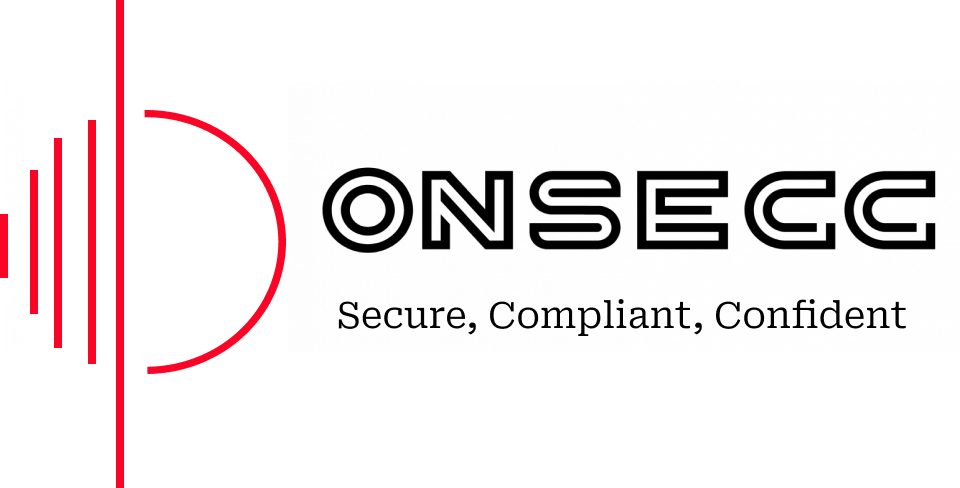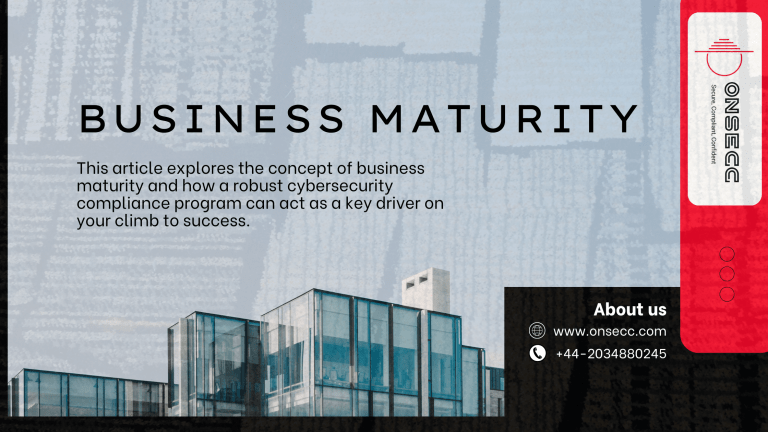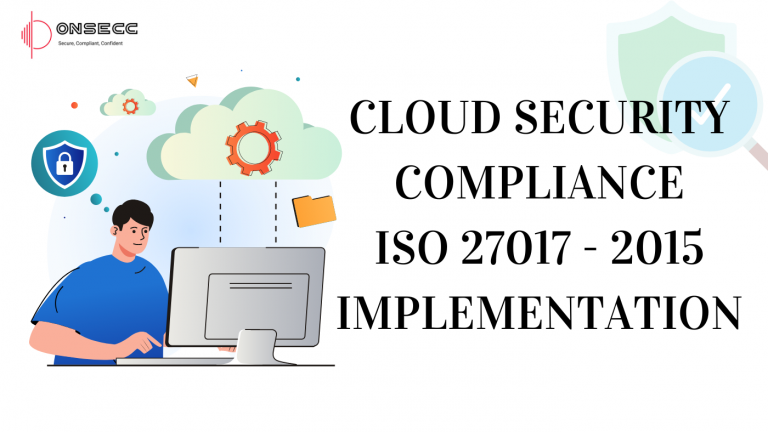ISO 27001 Standard: Enhance Your Organization’s Security with Onsecc
ISO 27001 standard is a widely recognized security standard. It provides a framework for establishing, implementing, and maintaining an information security management system. This helps ensure the protection of valuable information assets. Are you secure? Let’s check out!
In this article:
- ISO 27001: Understanding and Implementing the Basics
- What is ISO 27001?
- Which Businesses Would Benefit From ISO 27001?
- Reasons for Utilizing ISO 27001 Standards
- Locating Information Concerning ISO 27001
- At What Point Do Organizations Need ISO 27001?
- Strategies for Adopting ISO 27001 in Your Organization
- Conclusion
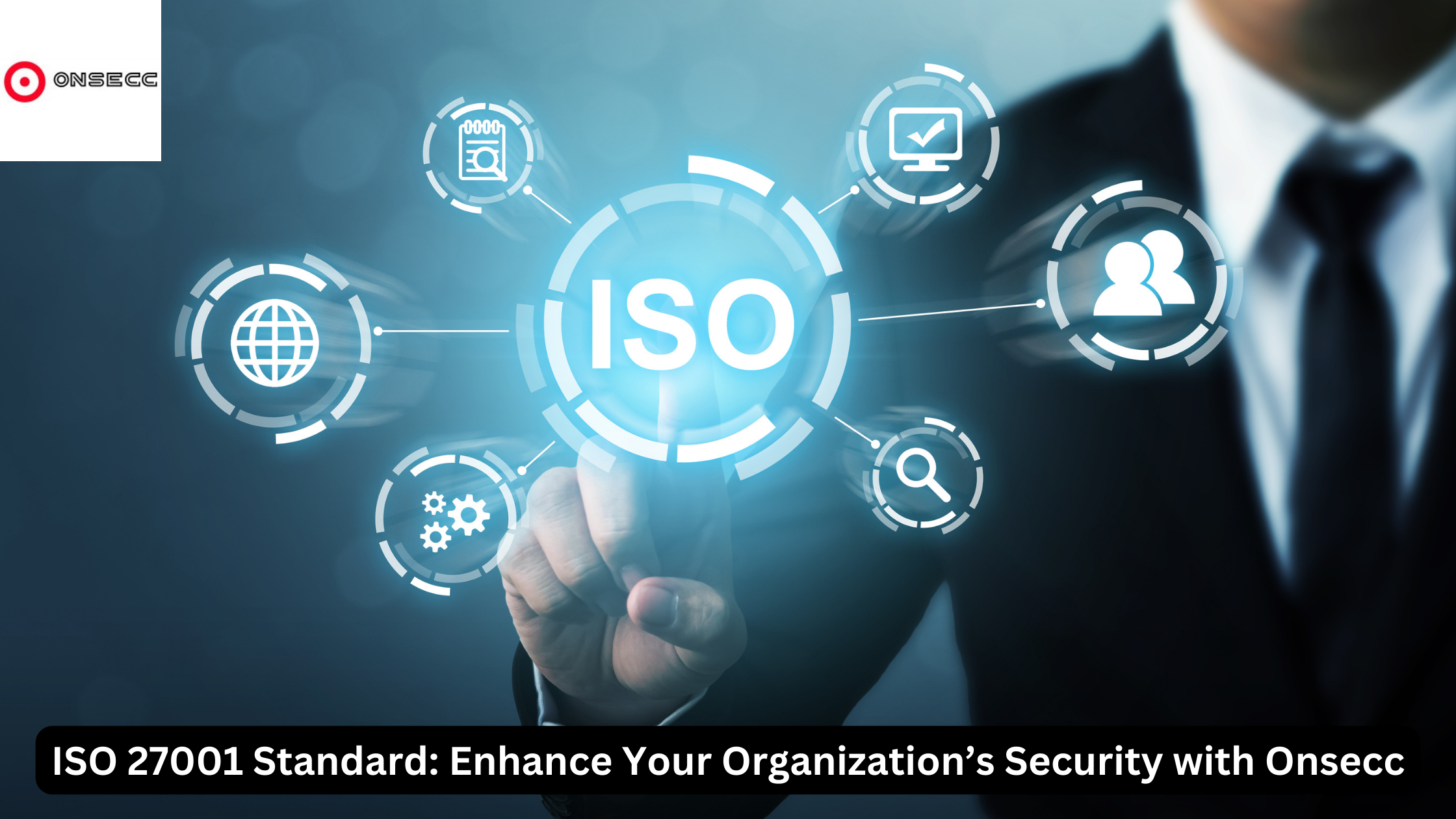
Also Read: Data Protection: Understanding the Essentials of Cyber Security
ISO 27001: Understanding and Implementing the Basics
Organizations that value data security know the importance of implementing an information security management system (ISMS). ISO 27001 is one of the main international standards that organizations use to achieve this goal. In this article, we’ll explore its basics so you can decide if your organization may benefit from implementing this standard and learn how to move forward should you decide to do so.
What is ISO 27001?
ISO 27001 is an information security management system (ISMS) standard published by the International Organization for Standardization (ISO). It is a widely recognized standard that provides a model for establishing, implementing, operating, monitoring, reviewing, maintaining, and improving an Information Security Management System. The goal of ISO 27001 is to create a secure and safe framework for organizations to manage their informational assets. The standard helps ensure that organizations establish, maintain, and monitor policies and procedures aimed at protecting and managing their digital assets.
Which Businesses Would Benefit From ISO 27001?
Small, medium, and large organizations alike can benefit from ISO 27001 if they work with sensitive data, such as customer personal data, credit card information, or passwords. Organizations that want to have the utmost trust from customers, stakeholders, and vendors, also benefit from ISO 27001. In hospitals, universities, legal, and financial organizations, for example, customers, patients, and stakeholders must have full trust that their data is secure.
Reasons for Utilizing ISO 27001 Standards
There are a number of reasons to use ISO 27001 standards, including:
Establish trust:
By implementing ISO 27001 standards, organizations can demonstrate their commitment to safeguarding confidential and sensitive data.
Provide security assurances:
Organizations can ensure data security when handling and storing sensitive information.
Increase efficiency:
ISO 27001 standards provide organizations with a framework for efficient data management with a comprehensive and consistent set of procedures and processes.
Demonstrate compliance:
Most organizations must comply with government regulations when handling digital information. ISO 27001 standards help organizations demonstrate their compliance with certain governmental and industry standards.
Adaptability:
The implementation of ISO 27001 standards can help organizations that have complex technology environments continuously improve in areas of security.
Cost savings:
Adopting ISO 27001 standards helps organizations identify areas of vulnerability, allowing them to quickly and economically address them.
Locating Information Concerning ISO 27001
Interested organizations can find information about ISO 27001 on the ISO website or from certification bodies. Additionally, the International Electrotechnical Commission (IEC) is the officially recognized international body for developing and producing information security standards.
At What Point Do Organizations Need ISO 27001?
Organizations typically decide to adopt ISO 27001 when they are subject to governmental or industry regulations and must demonstrate compliance with data safety requirements. Major breaches of data can also motivate organizations to embrace ISO 27001.
Strategies for Adopting ISO 27001 in Your Organization
Organizations that want to implement ISO 27001 have to take into account several factors to ensure successful implementation:
- Assessing organizational vulnerabilities: Organizations must identify their assets, understand their vulnerabilities, and plan corrective actions.
- Establishing an ISMS framework: An ISMS is a framework of policies, processes, and procedures integrated into an organization’s operations.
- Developing documented information management plans: Organizations must create detailed plans that include policies, processes, and procedures that help monitor and protect their information assets.
- Training and awareness: Organizations must provide thorough training for employees that covers the specifics of the ISO 27001 framework and general security tips.
- Measuring internal and external auditing: ISO 27001 requires periodic audits by internal and external experts.
- Implementing an ongoing review process: Organizations must continually monitor and review their ISMS to ensure security and stay up to date with internal and external changes.
Conclusion
In conclusion, ISO 27001 is an important security framework that can benefit organizations of all sizes. Organizations must consider their own security needs, design a framework that meets those needs, and follow the strategies discussed here for successful implementation. With ISO 27001, businesses can ensure the protection of their valuable information assets and increase customer trust while maintaining compliance.
Getting secure is the first step to expanding. Through security frameworks and monitoring, companies can remove a lot of barriers to growth. Click on the button below to get a free audit of your website’s security. Let’s see if you are all set to grow!
Contact info
- 3rd Floor, 86-90 Paul Street, London, EC2A 4NE, UK
- +44-2034880245
- hello@onsecc.com
Share Blog On
Recent Posts:
-
 Cyber Insurance for Small Businesses: What You Don't Know Could Cost You Everything
Cyber Insurance for Small Businesses: What You Don't Know Could Cost You Everything -
 Meet AkiraBot: The AI Spam Demon Haunting 420,000 Websites (and Counting)
Meet AkiraBot: The AI Spam Demon Haunting 420,000 Websites (and Counting) -
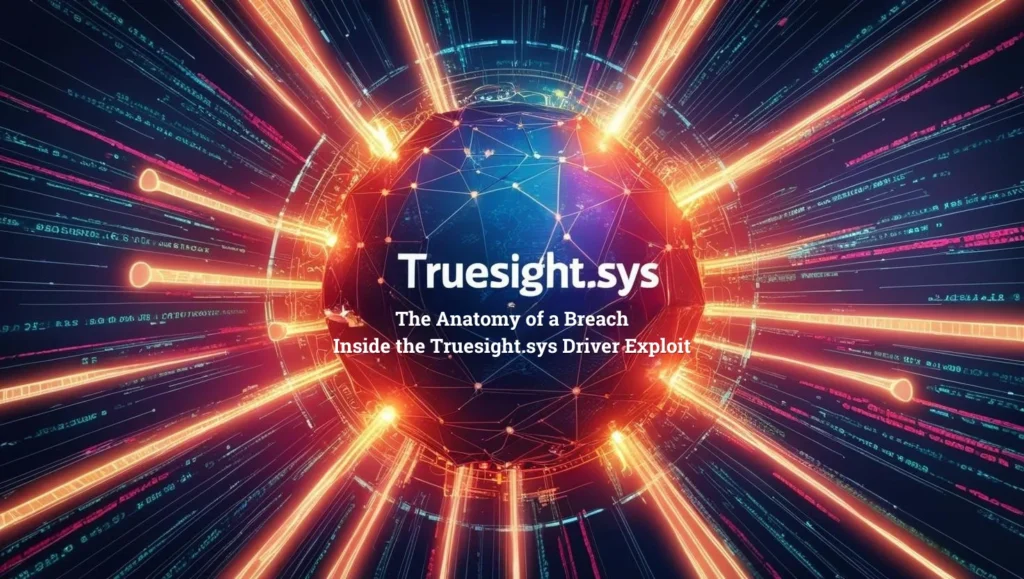 2,500 Faces of Deceit: The Proliferation of Malicious Truesight.sys Variants
2,500 Faces of Deceit: The Proliferation of Malicious Truesight.sys Variants -
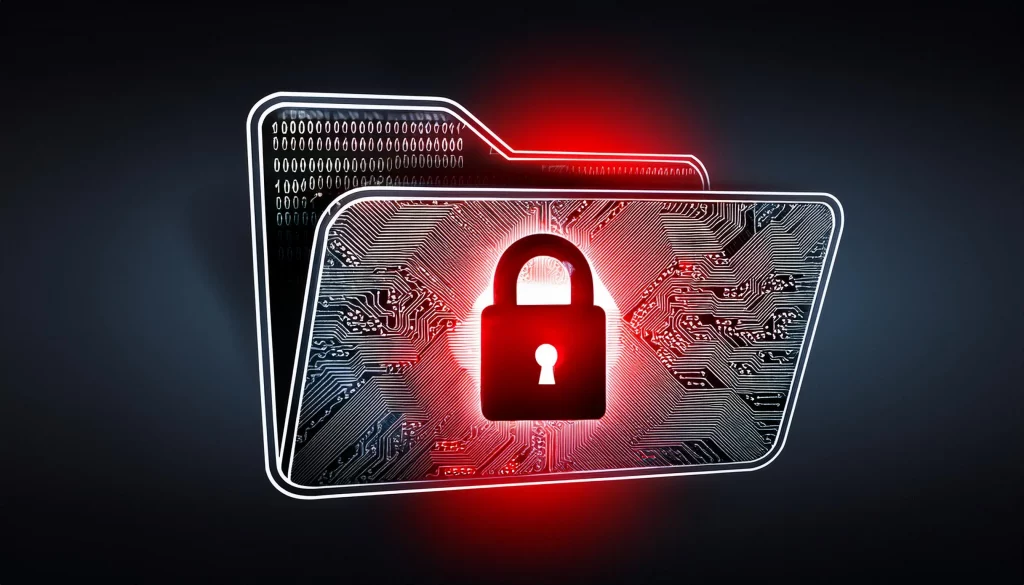 Zero-Day Vulnerabilities: The Invisible Threat Redefining Cybersecurity
Zero-Day Vulnerabilities: The Invisible Threat Redefining Cybersecurity -
 The Middle East’s Cybersecurity Gap: Building Defenses for a Digital Future
The Middle East’s Cybersecurity Gap: Building Defenses for a Digital Future -
 The Cost of Non-Compliance: What the TfL Cyber Attack Teaches Us
The Cost of Non-Compliance: What the TfL Cyber Attack Teaches Us -
 GDPR in the United States: A Do or Die Situation for Businesses
GDPR in the United States: A Do or Die Situation for Businesses -
 Is Your Business PCI Compliance Certified? Don’t Risk It!
Is Your Business PCI Compliance Certified? Don’t Risk It! -
 12 Ways Onsecc Enhances SaaS Cybersecurity Compliance
12 Ways Onsecc Enhances SaaS Cybersecurity Compliance -
 Practical Insights into Implementing ISO/IEC 27001:2022
Practical Insights into Implementing ISO/IEC 27001:2022
Data Protection: FAQs
ISO 27701 was developed to provide guidance on implementing and maintaining an information security management system that is in compliance with the requirements of the ISO 27001 Information Security Standard.
ISO 27001 is a standard that outlines a comprehensive set of requirements for an information security management system (ISMS), while ISO 27002 provides guidance on how to implement an ISMS based on the requirements of ISO 27001.
Yes, ISO 27001 provides requirements for securing information assets, which includes cyber security measures.
Yes, ISO 27001 helps organizations meet GDPR requirements with its framework for protecting personal data.
The 14 domains covered by ISO 27001 include scope, policy, organization, structure, resources, processes and technology, control objectives and controls, roles, responsibilities and authorities, management objectives and performance reviews, monitoring and measurement activities, internal audit, management reviews, regulatory compliance, document control, and records management.
